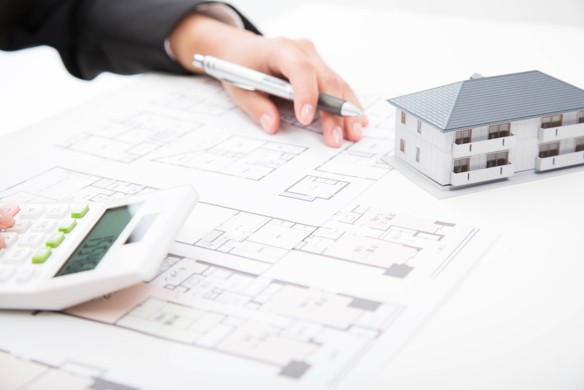Selling Commercial Property: What Do I Need To Know?
Jan 7 2019
Darren Best

Any good investor knows that a time will come where they need to sell their commercial real estate for a nifty profit. On the other hand, not everyone knows how to sell commercial property, or the best routes to take for an easy sale. Read our top tips for putting a commercial building on the market and making the most from it. Here are the steps to know when selling a business property
- Communicate with your buyer
- Liaise with solicitors
- Wait for buyer and seller's solicitors to communicate
- Due diligence
- Negotiate
- Exchange contracts
- Completion
Selling Commercial Property: The Process

Image credit: ImageFlow / Shutterstock.com
There are a few steps to selling a commercial building once you have a buyer. You will need to:
Communicate with your buyer
It is always key to maintain open communication with you buyer. In this step you will draw up the Heads of Terms and also provide all the necessary details mentioned above, like the EPC and asbestos survey results.
Liaise with solicitors
You will send the agreed Heads of Terms to your solicitor, who should then obtain your title documents from the Land Registry. Your solicitor will also arrange the exchange of contracts and officially confirm any finanicial transfers - as well as answer any questions you may have about the sale of your commercial proeprty.
Wait for buyer and seller's solicitors to communicate
During this step, the contract package will be sent, along with any responses to Commercial Property Standard Enquiries (CPSEs).
Due diligence
This is normally carried out by the buyer’s solicitor. This step can last a few weeks, and more communication will take place between yourself and the buying party if they raise any questions about the contract
Negotiate
After due diligence, documentation will need to be agreed to, this includes the transfer deed and the terms of sale.
Exchange contracts
The exchange will mean that the buyer has to put down a 10% deposit on your commercial property to proceed. On exchange, a completion date will be set, and it is legally binding.
Completion
Upon completion your mortgage will be discharged and the buyer becomes the legal owner of the property. Keys are to be handed over and you can revel in the fact that the commercial property sale is complete!
Best way to sell commercial property - Other things to know.
1. The necessary information on your property
Not only will you need to prepare your premises, but you will also need to be prepared with details on your property in order to provide commercial real estate buyers with the information they require to purchase. This usually includes the commercial planning use classes (for instance F1/D1 properties - now referred to as use class F1, as well as some elements of use class E - read more about the new use class changes here - or ‘public service’ buildings etc). Also important to provide are an EPC (Commercial Energy Performance certificate), business rate details, any costs that the buyer will be responsible for, and important health and safety information where applicable- such as the presence of asbestos. The buyer will also send Commercial Property Standard Enquiries (referred to as CPSEs) that would will be expected to answer (with the help of your solicitor), so make sure you know the necessary information on your commercial property.
2. How you want to sell
As an owner, when selling commercial property, there are several options open to you. You could sell commercial property at auction, through a commercial property agent, or even go it alone.
For those looking to sell commercial property fast, using an auction may seem like a good option. Putting commercial office space up for auction often guarantees a fast transition from when the hammer goes down to the exchange of contracts, and is thus often attractive to those looking to sell off their property relatively hassle free. However, commercial property sellers must always bear in mind that the auctioneer will take a percentage of the money made, and you will also need to cover entry fees. As a result, it can actually be cheaper to sell through estate agents that specialise in commercial property.
You will need to weigh up the pros and cons of all the different ways to sell your business premises before making your final decision.
3. How to attract potential buyers
Just as you would with a residential property, it is important to stage your commercial property with a view to helping potential buyers imagine themselves there. This means giving it a lick of paint and removing any clutter or distractions. If your commercial building is in poor condition, consider investing a little money into fixing this. This will help you sell commercial property fast, and for a better price.
Once you have all information on your property, have decided how you want to sell it, and prepared the building physically, you are ready to consider the selling process itself.
Image credit: bannosuke / Shutterstock.com
You could now consider reinvesting in commercial property and becoming a property developer, the selling process will then be second nature to you!
Feature image credit: F8 studio/ Shutterstock.com
